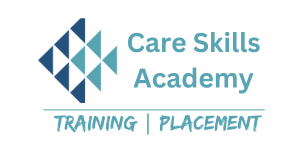Drones have rapidly evolved from niche gadgets to essential tools across various industries like agriculture, media, surveillance, and delivery. With the rise in drone applications, there’s a growing demand for skilled technicians who can troubleshoot and repair these complex devices. A Drone Repairing Course provides the perfect foundation for anyone passionate about technology and aerial robotics. Here’s a closer look at what a comprehensive drone repair course entails, its benefits, and the exciting career paths it opens up.
What to Expect from a Drone Repair Course
A well-rounded drone repair course covers everything from the fundamentals to advanced repair techniques. Starting with an introduction to drone technology, the course will cover the core components, such as motors, propellers, batteries, and sensors. Understanding these components and their functions is essential, as each plays a vital role in a drone’s operation.
Another core focus is the study of electronics and circuitry. Knowing how to work with a drone’s electrical components, troubleshoot wiring issues, and diagnose circuit malfunctions is essential. Courses often include hands-on workshops that allow you to practice soldering, replacing damaged components, and testing the drone after repairs.
Advanced Diagnostics and Troubleshooting
Once you grasp the basics, the course progresses to more complex topics like flight controllers, GPS systems, cameras, and gimbals. A key part of the curriculum is learning how to diagnose problems with these advanced systems. For instance, if a drone loses GPS signal mid-flight, the technician must identify and fix the cause to prevent it from recurring. The course typically includes lessons on using diagnostic software, which enables efficient fault detection in flight performance and camera stabilization.
Battery management and safety are also critical areas covered in a drone repair course. Drones are powered by lithium polymer (LiPo) batteries, which are sensitive and require proper handling. You’ll learn to identify battery issues, extend their lifespan, and ensure safe charging and storage practices.
Hands-On Practice with Real Repairs
Hands-on experience is a key aspect of any drone repair course. Working on real drones during training allows you to apply what you’ve learned in a practical environment. From fixing basic issues like propeller damage to more advanced problems such as calibrating flight controllers, these exercises ensure you build confidence in handling drones.
Most courses also teach soldering and desoldering techniques, necessary for replacing components on the circuit board. You may also work on case studies to simulate real-world scenarios and learn how to handle challenging repairs. This prepares you for industry situations where quick and efficient repairs are essential to keep drones operational.
Career Opportunities in Drone Repair
After completing a drone repair course, you’ll be well-prepared for various roles in the drone and technology industry. Some potential career paths include:
- Drone Technician: Work with companies that rely on drones for agriculture, delivery, or surveillance. As a drone technician, you’ll perform routine maintenance, troubleshoot issues, and keep drones in optimal condition.
- Freelance Repair Specialist: Start your own business offering repair services to individuals and companies. This path allows for flexibility and specialization in drone types or industries.
- Research & Development Technician: Companies developing new drone technologies need skilled technicians to assist with testing, troubleshooting, and improving design flaws.
- Drone Instructor or Consultant: With the right experience, you could help train future technicians or consult for businesses integrating drones into their operations.
The Benefits of a Drone Repair Course
By taking a drone repair course, you’re investing in a skill set that’s in high demand. As drones become more widely used, skilled technicians will be essential to keep them operational and efficient. The course offers a unique opportunity to blend technical knowledge with hands-on skills, preparing you for a stable and rewarding career.
Moreover, drone technology continues to evolve, meaning there’s ample room for advancement and specialization within this field. From working with delivery drones to surveillance systems, the possibilities are vast, and the expertise gained from a drone repair course opens doors to many of them.
Conclusion
Whether you’re a hobbyist, a tech enthusiast, or someone looking for a lucrative career, a drone repair course can be your gateway into the expanding world of drone technology. With a blend of theory, practical skills, and industry insights, this course provides everything you need to succeed as a drone repair technician. Ready to take flight in your new career? Sign up today and get hands-on experience that will prepare you for a future in the high-demand drone repair industry.

